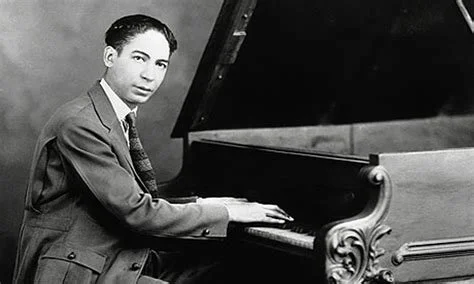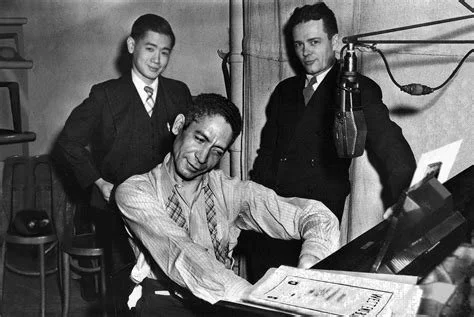One of the most colorful and pioneering figures in early jazz, Ferdinand Joseph LaMothe, better known as Jelly Roll Morton (1890–1941), was born in New Orleans in 1890. He began playing piano around the age of ten and, by his early teens, was performing ragtime in Storyville, the city’s red light district. His stage name, "Jelly Roll," a slang term at the time for female genitalia, reflected his flamboyant personality and his immersion in the nightlife culture that shaped early jazz. At age seventeen, Morton was reportedly kicked out of his family home for playing piano in the bordellos, an experience that marked a turning point in his life. From then on, he devoted himself fully to music, becoming not just a pianist and composer but also a vaudeville performer, pool hustler, hotel owner, boxing promoter, cosmetics entrepreneur, music editor, and recording executive. His life was as bold and wide ranging as his musical output.
Between 1904 and 1917, Morton traveled extensively across the United States, playing in vaudeville and cabaret shows from the Gulf Coast to California. He moved to Chicago in 1922 and recorded his first sides in 1923. By 1926, Morton had formed his legendary band, Jelly Roll Morton and His Red Hot Peppers, and made a series of landmark recordings with Victor Records, including “Grandpa’s Spells” and “Black Bottom Stomp.” These studio sessions are considered among the finest examples of New Orleans jazz and showcased Morton’s brilliance as a composer, arranger, and pianist.
Though he famously claimed to have "invented jazz," a statement often dismissed as self-promotion, Morton’s contributions to the development and dissemination of jazz are indisputable. His solo piano recordings, such as “King Porter Stomp” and “Tiger Rag,” are considered masterpieces, and his compositions have been performed and reinterpreted by jazz musicians for generations. As musical styles shifted in the 1930s and Morton’s career waned, folklorist Alan Lomax recognized his significance and invited him to the Library of Congress. There, in 1938, Morton recorded over 100 sides of music and oral history, creating an extraordinary archive that preserves not only his musical legacy but also his firsthand recollections of the early jazz era. Jelly Roll Morton died in Los Angeles in 1941, but his legacy lives on in the recordings, compositions, and larger-than-life stories that helped shape the foundation of jazz.

